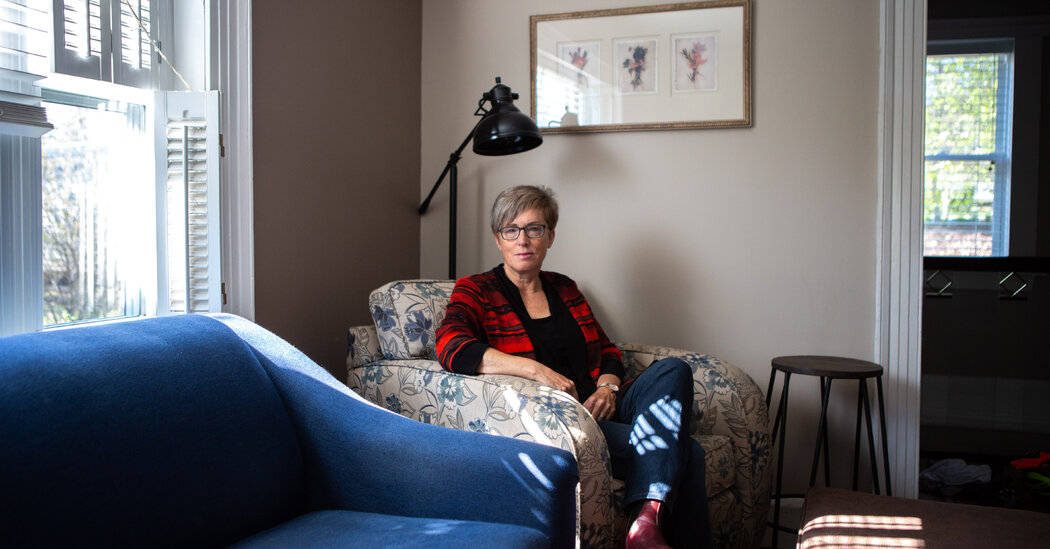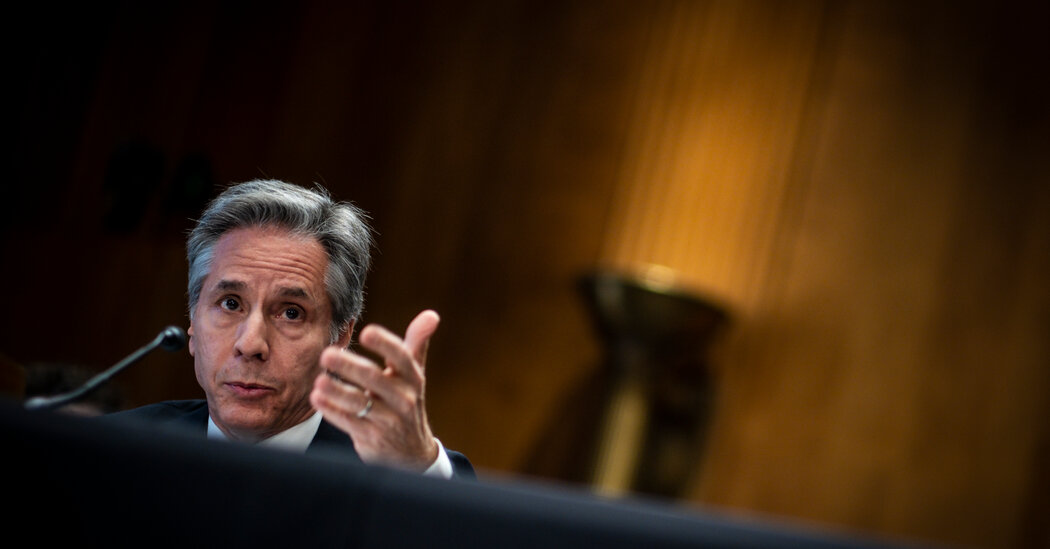
For almost two years, the province of New Brunswick has had a policy that required teachers to use the preferred names and genders of schoolchildren. But under a new policy introduced by the provincial leader, Premier Blaine Higgs, teachers must get the permission of parents if the child is under the age of 16.
The new policy, which does not require legislative approval, has created a political firestorm that has the potential to topple his government.
Backlash mounted against him during a week when Canada was outraged by a mother’s accusation that a man questioned her 9-year-old daughter’s gender at a shot-put competition in Kelowna, British Columbia. As my colleague Dan Bilefsky reported, the man denied accosting the girl or her mother, telling Castanet, a local online news website, that he only asked an official if the event was coed.
[Read: Man Who Questioned 9-Year-Old Athlete’s Gender Spurs Outrage]
Criticism and condemnation of Mr. Higgs’s policy came swiftly from L.G.B.T.Q. activists, political opponents, teachers, former public servants and the official who serves as the province’s child and youth advocate. Mr. Higgs’s move also sparked an open revolt within his Progressive Conservative caucus.
Before I arrived in New Brunswick earlier this week to report an unrelated article, six members of the Progressive Conservative caucus, including two members of Mr. Higgs’s cabinet, publicly challenged the premier.
Then on Thursday, the internal party revolt expanded. A third member of Mr. Higgs’s cabinet quit her post largely because of the issue.
With the support of members of Mr. Higgs’s Conservative caucus, the legislature also managed to pass a motion calling on the government to have Kelly Lamrock, the child and youth advocate, review the premier’s plan, in effect, rebuking it.
Mr. Lamrock called the policy “shoddy and inadvertently discriminatory.” Students who do not want their parents consulted will be sent to mental health workers, a move that some have said could become a form of conversion therapy, which is illegal in Canada.
The province’s education minister said that the government had received hundreds of complaints about the policy. But when Mr. Lamrock asked for copies of them, he said he was given three emails sent over two and a half years. None of them, he said, addressed the specific policy and some of them contained homophobic comments.
Bill Hogan, the provincial education minister, said that the government was guided in part by a brief submitted last month by five national organizations involved in gender issues. They include the Ontario-based Canadian Gender Report, which describes itself as opposed to the “medical transition of children, the introduction of gender identity teaching in our schools, and the changing legal landscape that replaces biological sex with the subjective notion of gender self-identity.”
In the midst of the political firestorm he created, Mr. Higgs remains defiant.
After telling the legislature that gender dysphoria is something that has become “popular and trendy,” Mr. Higgs said that the current policy, which his government will replace at the end of the month, creates “an erosion of the family role in child’s upbringing.”
Exactly why the policy has become a concern for Mr. Higgs over the last two years is not fully clear. During the debate on the motion he lost, Mr. Higgs said that it “kind of slid into the system” in 2020 and got broader attention only when people began hearing about drag queen story times in libraries. But a leader of the group that helped develop the 2020 policy that Mr. Higgs is rolling back said the group had been working with the government on the policy for about a decade.
Mr. Higgs said he would heed the legislature’s motion and allow Mr. Lamrock to conduct a review of his policy. The review is due by the end of August. But he did not commit to adopting any of its recommendations. He has also indicated that he was prepared to fight an election over the policy despite the caucus dissent.
I spoke with Gail Costello, a recently retired teacher who is co-chair of Pride in Education, a teachers’ group that was instrumental in the introduction of the soon-to-be-revoked Policy 713, and various other gender identity-related school policies. She said that she believed Mr. Higgs had a much broader agenda.
“If you go after Policy 713, then you can go after the curriculum,” Ms. Costello said. “If you can go after the curriculum, then can you also go after the books in the schools that discuss those parts of the curriculum? You can sort of see the writing on the wall. That’s why it’s important to cut this off right now.”
Ms. Costello said that she believed the premier’s plan would ultimately be struck down by a court and allow her to move onto her newfound retirement passion: pickleball.
“This is another bump on the road,” she said. “I am 100 percent sure that this isn’t going to stand, that changes are going to be made and that the kids are going to be fine in September.”
Trans Canada
-
My colleague Norimitsu Onishi and Renaud Philippe, a photographer based in Montreal, spent three days with 109 French firefighters who are battling wildfires in northern Quebec. Their commander told them if people in the south were wondering “why there’s smoke there, it’s because the fires here are unstoppable.”
-
In their report on the road tragedy that took at least 15 lives in Manitoba, Kim Wheeler and Dan Bilefsky report that the victims, most of whom were from Dauphin, were just 10 minutes from their destination, a casino, when their bus and a semitrailer truck collided. Another 10 people were injured.
-
The company behind the Instant Pot, an electronically controlled device that pressure-cooks and slow-cooks food — and was invented in Ottawa by a former Nortel engineer — has filed for bankruptcy protection.
-
In just their sixth season, the Vegas Golden Knights have won the Stanley Cup.
A native of Windsor, Ontario, Ian Austen was educated in Toronto, lives in Ottawa and has reported about Canada for The New York Times for the past 16 years. Follow him on Twitter at @ianrausten.
How are we doing?
We’re eager to have your thoughts about this newsletter and events in Canada in general. Please send them to nytcanada@nytimes.com.
Like this email?
Forward it to your friends, and let them know they can sign up here.



